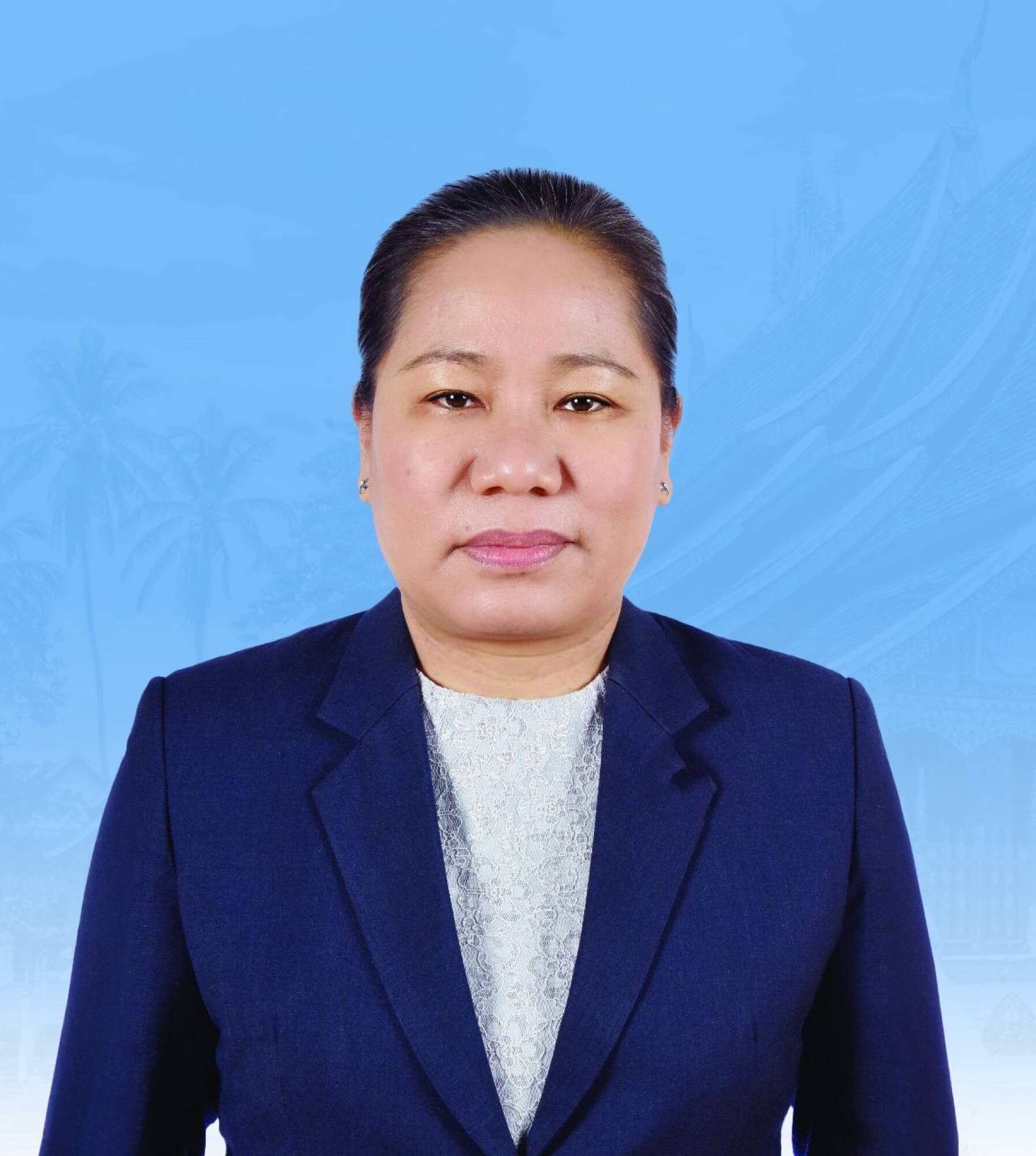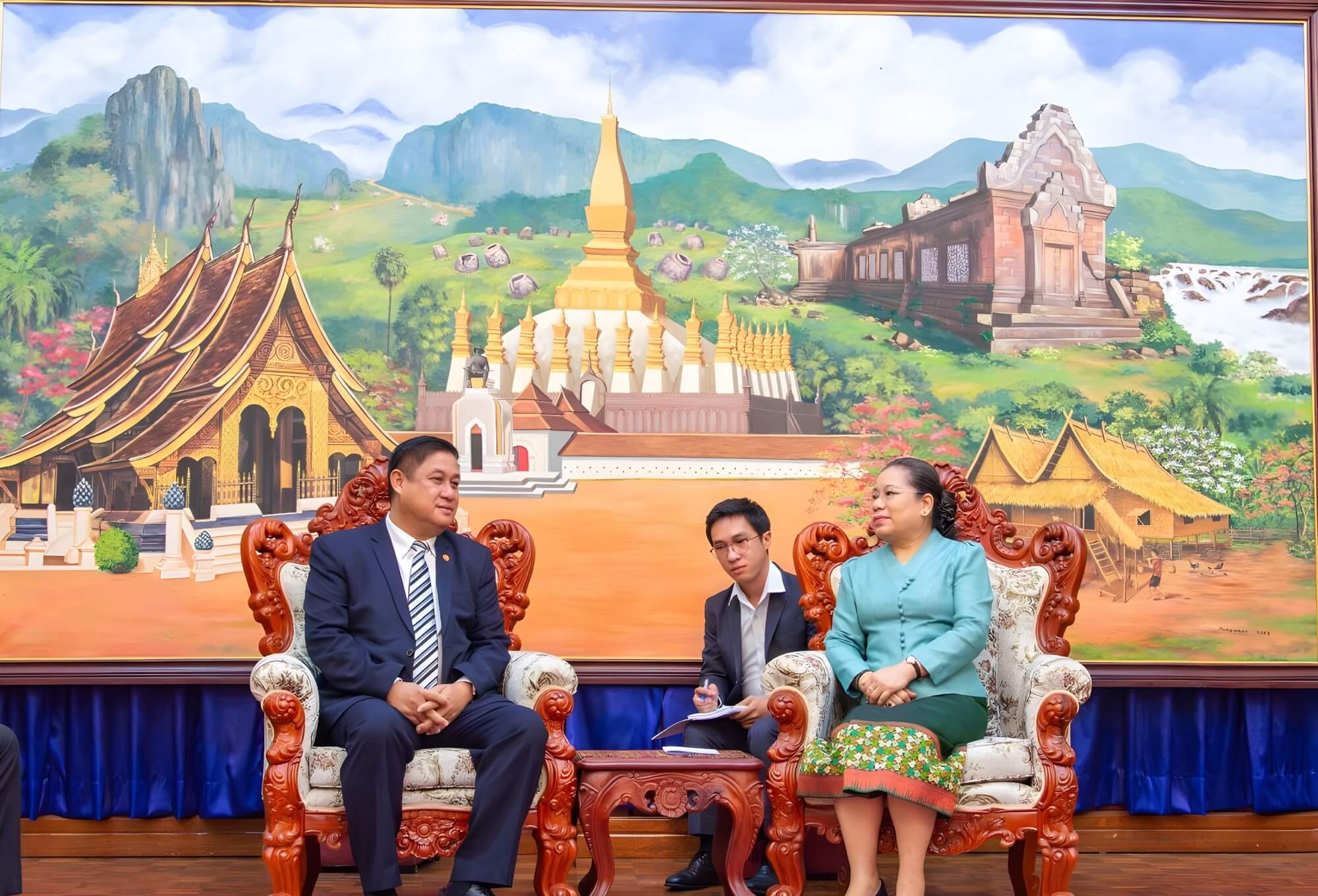


As the Lao PDR assumes the Chairpersonship of ASEAN and your Ministry leads the ASCC, could you share Lao PDR’s top priorities for the ASCC?
The Lao PDR’s priorities for the ASCC are as follows:
- Culture and Arts: Promoting the Role of ASEAN Culture and the Arts for Inclusion and Sustainability
To promote the role of culture and arts in the ASEAN region in order to strengthen human capacity building and increase more activities and projects of the culture and the arts in developing small and medium-sized cultural enterprises along with green growth and sustainable development.
- Promoting Environmental Cooperation: Climate Change Resilience
To work on priority areas, including conservation of biodiversity and sustainable management of natural resources; promoting environmentally sustainable cities; addressing climate change by mitigation and adaptation; and sustainable consumption and production. ASEAN needs to upgrade policies and actions, including the formulation of regional policies and engaging in international collaboration to support environmental preservation and sustainable development. It is time for the ASEAN Community to deepen their cooperation on economic recovery, taking into account the urgent needs for green and clean development initiatives, promoting local population livelihoods and food security, and taking effective climate action.
- Women and Children: Promoting the role of Women and Children towards the transformation of behaviourism in ASEAN
To promote gender equality and the empowerment of women and girls through the acknowledgement of unpaid care and domestic work (UCDW), a significant issue in many Asian countries, including ASEAN Member States. Women and girls typically spend a disproportionate amount of time on UCDW compared to men and boys, which can limit their opportunities for education, work, and participation in public life.
- Health: Transforming ASEAN Health Development Resilience in a New Context
The COVID-19 pandemic has shown vulnerabilities in the health system, which has profound implications for health and socio-economic development. There is a need to strengthen the capacity of the health system to be more resilient and ensure timely response and rapid and effective contributions to socio-economic recovery.
The ASEAN Community Vision 2025 outlines goals for the ASEAN region. Could you share how Lao PDR’s chairpersonship will contribute to the realisation of this vision, particularly within the ASCC sectors?
ASEAN, like other regions around the world, continues to face myriad challenges, including lingering economic and financial difficulties, even though the region has been gradually recovering from multidimensional disturbances. This ongoing recovery remains fragile. Additionally, issues such as climate change, natural disasters, and traditional and non-traditional security issues continue to be pressing challenges. Against this backdrop, enhancing connectivity and resilience is of utmost importance to ensure ASEAN’s collective efforts in strengthening the ASEAN Community, seizing opportunities, and effectively addressing present and emerging challenges.
It is imperative for ASEAN to enhance its cooperation on ASEAN connectivity and resilience by intensifying ASEAN cooperation under the three community pillars: promoting infrastructure connectivity, narrowing the development gap, promoting greater economic integration and people-to-people exchanges, and further strengthening ASEAN’s relations with external partners, while maintaining ASEAN’s relevance and ASEAN centrality in the evolving regional architecture, among others. Therefore, the Lao PDR has determined the theme for its ASEAN Chairmanship in 2024 “ASEAN: Enhancing Connectivity and Resilience” which would significantly contribute to implementing and realising the ASEAN Community Vision 2025.
For the ASCC, a number of important ASEAN documents are expected to submit for adoption, notation and signing by the ASEAN Leaders at the 44th and 45th ASEAN Summits in October 2024 in Vientiane, Lao PDR, namely, the Vang Vieng Declaration on Promoting the Small and Medium-sized Cultural Enterprises aligned with the Green Growth for Sustainable Development; ASEAN Joint Statement on Climate Change to UNFCCC COP 29; Declaration on Strengthening Care Economy and Resilience Toward ASEAN Community Post-2025; ASEAN Leaders’ Declaration on Biosafety and Biosecurity; the development of a plan of action to operationalise the ASEAN Leaders’ Declaration on Ending Inequalities and Getting on Track to End AIDS; and development of a plan of action to operationalise the ASEAN Leaders’ Declaration on Ending Inequalities and Getting on Track to End AIDS by 2030.
Furthermore, there are some matters that need to be urgently finalised and implemented within 2024, such as the Establishment Agreement for the ASEAN Centre for Public Health Emergencies and Emerging Diseases (ACPHEED), the End-Term Review of the ASCC Blueprints, the development of the ASCC Strategic Plan, and so on.
Next year marks a significant chairmanship year for the Lao PDR, which will assume the role of co-chair of the HLTF–ACV, in which the three pillars will deliberate and develop their strategic plans in alignment and realise the ASEAN Community Vision 2045, principally endorsed at the 43rd ASEAN Summit. The Lao PDR ASCC chairmanship expresses its support for getting involved in the loop of cooperation. It also gradually agreed upon the necessity of establishing a mechanism called an Ad-Hoc Working Group to start working on the development of the ASCC strategic plan, which is planned to be endorsed by the Leaders at the ASEAN Summit in 2025.
What are the challenges and opportunities facing the ASCC?
The ASEAN mechanism faces several challenges caused by geopolitical competition between the major powers. This matter will be the main challenge to the Lao PDR’s ASEAN Chairmanship role. Therefore, in 2024, we will host various formal and informal meetings with all stakeholders to ensure the process and preparation of the Lao PDR’s ASEAN Chairmanship will be successful and comprehensive.
The Lao PDR’s ASEAN Chairmanship will elevate its role in the regional and global arenas as a key influencer in cooperation mechanisms and determine the directions of the agreement on various important regional issues concerning protection, peace, stability, security and prosperity.
At the same time, assuming the chairmanship of ASEAN is crucial for Lao PDR as it will emphasise areas of cooperation that align with the key priorities of the chairmanship, particularly the implementation of our national agenda and thereby bringing benefits for Lao PDR. In addition, other key challenges to the implementation of the ASCC’s activities and programmes are related to (i) ownership; (ii) national coordination; and (iii) mobilisation of the fund to support various sectoral bodies under the ASCC that remain key challenges for the implementation and development of the current ASCC’s Strategic Plan.
Furthermore, it presents a significant opportunity to promote Lao tourism as 2024 has been designated as the Visit Laos Year. This can be achieved though the delegation’s media outreach and collaboration with private sector entertainment media, raising awareness and understanding of Lao customs as well as the diverse cultural and tourist attractions spanning from north to south.
In addition, we will take this opportunity to promote our policies, whether it is foreign policy of our party-state or the promotion of socio-economic cooperation between Laos and other countries in the world. As Laos assumes the ASEAN chairmanship, Laos is considered to be at the focal point of internal attention, providing a crucial opportunity to boost tourism, attract foreign investment, and enhance trade cooperation between Laos and other countries in the world.
This presents a significant opportunity, but it necessitates the vital contribution of all members of society, whether they belong to the public sector, private sector, or the general public. Collaboration is required at all levels, from central to local level, to collectively contribute and ensure that our ASEAN chairmanship attains its objectives and expected deliverables.
The chairmanship of ASEAN serves as an extension of our foreign policy, encompassing principles of peace, independence, friendship, and cooperation through the regional platform and international engagement. The aim is to foster a conducive political environment for national development and create opportunities to promote trade and investment in the Lao People’s Democratic Republic according to the direction of economic diplomacy.

The Lao PDR includes promoting culture as one of its priorities during its ASEAN chairmanship. Could you share some of the Lao PDR’s initiatives and strategies aimed at preserving and promoting ASEAN’s cultural heritage?
The Lao PDR assumes the role of the chair at the 10th Meeting of the ASEAN Minister Responsible for Culture and Arts and its Related Meetings with Dialogue Partners with the theme of “Promoting the Role of ASEAN Culture and the Arts in the Post-COVID-19 Pandemic for Sustainable Development” from 2022 to 2024. The theme aims to promote the role of culture and the arts in the ASEAN region and the ASEAN Plus Three countries in order to strengthen and build capacities and increase more activities and projects in the culture and the arts. The plan is to encourage countries to have more activities that aim to develop small and medium-sized cultural enterprises, and initiatives that address green growth and sustainable development within ASEAN and beyond.
The several deliverables, initiatives, and activities are expected to support this priority of culture such as a Declaration on Promoting the Small and Medium-sized Cultural Enterprises aligned with the Green Growth for Sustainable Development; the ASEAN Vientiane Performing Arts Programme; the ASEAN Vientiane Film Week; The Best of ASEAN Performing Arts 2024: “ASEAN as One Stage”; ASEAN-Japan Youth Exchange Programme on the Creative Fine Arts Productions; ASEAN-Korea Music Festival 2024; the ASEAN’s Musical Instrumentalist Students Exchange Programme; the Saa Paper Workshop to Promote Plastic-Free in ASEAN; and the ASEAN Heritage Train-Enhancing Connectivity towards Cultural Diversity.
How can culture contribute to the region’s development and help shape a shared ASEAN identity, and what role can Lao PDR play in advancing these goals?
The ASEAN Culture and Arts Sector holds a very important role in contributing to national socio-economic development. It also plays a crucial part within the ASEAN Socio-Cultural Community Pillar, through its substantial efforts to implement and realise the ASEAN Strategic Plan for Culture and Arts 2016-2025, ASCC Blueprint 2025, and ASEAN’s Vision 2025.
ASEAN has a unique identity, with diverse cultures and arts, traditions, languages, and religions. Even though there are differences, the people of ASEAN live together peacefully, in harmonious solidarity, mutual assistance, and people-to-people connectivity through the effective and efficient ASEAN cooperation mechanisms. It is especially true in working together to preserve and promote cultural heritage and share best practices for the sustainable development and prosperity of each ASEAN nation.
The Lao PDR has played an important role in this scope of work, particularly in identifying culture and arts as a foundation for national sustainability. Culture is also a driver for social advancement in strengthening human resource development, fostering harmonious sodality in society, promoting justice, and achieving people’s mental and material well-being.
The Lao government, together with its people, has revitalised the country’s culture through different platforms. One such initiative is building cultural families and villages, which includes organising cultural festivals and traditional events for our people to participate in. These cultural exchanges promote the different ethnic groups among the Lao people, encouraging them to respect and understand each other, establish friendly ties, and cooperate in efforts toward social harmony, prosperity, and sustainable development.







